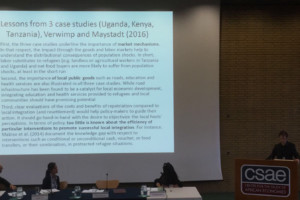Hi all,
These links seem often start with obituaries these days (which is probably down to nothing more than my age, and consequently the ages of my role models and intellectual heroes growing up – many of who were 30-40 years older than me). This isn’t an obituary, but it created the same kind of awful sensation in the pit of my stomach: news that Joel Embiid, after 31 games of games of pretty much unprecedented brilliance for a young player, has been ruled out of playing basketball for the rest of the NBA season. To put that in perspective, over the last 4 years, he’s played around 6 months of competitive basketball, during which time he’s managed to be so brilliant that he was chosen with the third pick in the NBA draft and it’s been suggested he may already be one of the greatest centers ever. It will absolutely suck if his career never takes off because of his brittle bones and ligaments. Sigh. Oh well, at least Eoin Morgan has just bashed a century. [And of course, as soon as I finished that sentence, he was run out].
1. On to a happy link first – how’s this for an awesome technology: a mosquito trap sophisticated to differentiate between different species, collecting them automatically so we can analyse the pathogens borne in the blood they’ve sucked from people they’ve bitten. It could provide information to feed into public health programmes or simply be used to analyse how diseases and disease burdens change. Amazing.
2. There are many superb lines in this Russ Roberts blog. One is “I am answering your question, I told him. You just don’t like the answer.” Another is “published and true are not synonyms”. He talks eloquently and honestly about the limits of knowledge in economics (you could apply this to many, many other disciplines, but Roberts happens to be an economist) and the reticence of many to acknowledge them. He also, as an aside, talks about the famous Autor finding about the effect of China on US manufacturing jobs, mentioning that a recent paper suggests that it overestimates this effect. The funny thing is, as Francis Teal pointed out to DFID in the keynote talk at our economics conference last year, Autor’s findings are already that most of the decline in the US is explained by non-China factors.
3. Here’s another academic disagreement that’s been getting good coverage recently: Laurence Chandy and Brina Seidel (or Gertz, I’m getting confused…) did some work suggesting that we can now just redistribute our way out of poverty. Three very good articles point out the substantial problems here. First Berk Ozler notes how hard it is to know exactly who’s poor, and how poor. Second, Chris Blattman points out how hard it is to know what changes will work at scale and maintain long term support. And lastly, an excellent piece by Maya Forstater at CGD making the additional points that the related Sumner/Hoy redistribution would wind up redistributing from the poor to the slightly poorer, driven by a fairly arbitrary poverty line. She adds in a few kicks at shoddy thinking about taxing the super-rich and tax havens, to boot.
4. Via Adam, a new VoxEU article on the effect of migrants at firm level in France. Here’s a spoiler: it’s good. First, it’s associated with an increase in firm-level productivity. Secondly, it’s associated with an increase in capital investment. Thirdly, it’s associated with an increase in exports. And lastly, it’s associated with an increase in the wages of their native-born colleagues. Good thing migration is so popular all the world round, right?
5. This is definitely one for the economists only: Noah Smith on the virtues of structural econometrics and quasi-experimental econometrics. I really strongly recommend that all economists read it, though – I don’t think most people quite appreciate some of the points he makes about the limitations of experimental econometrics, though those of econometrics based on big (often crazy) models are rather better rehearsed.
6. In which Alex Tabarrok discovers that development is complicated.
7. And to close it out, this is a special brand of crazy that I find almost endearing: an American man has taken out a full page ad in The Times essentially declaring that he is the King of England. Well, I suppose whatever Idi Amin can do…
I’m traveling next week, so the links might be a little late or threadbare next Friday. Apologies.
Have a great weekend, everyone!
R



